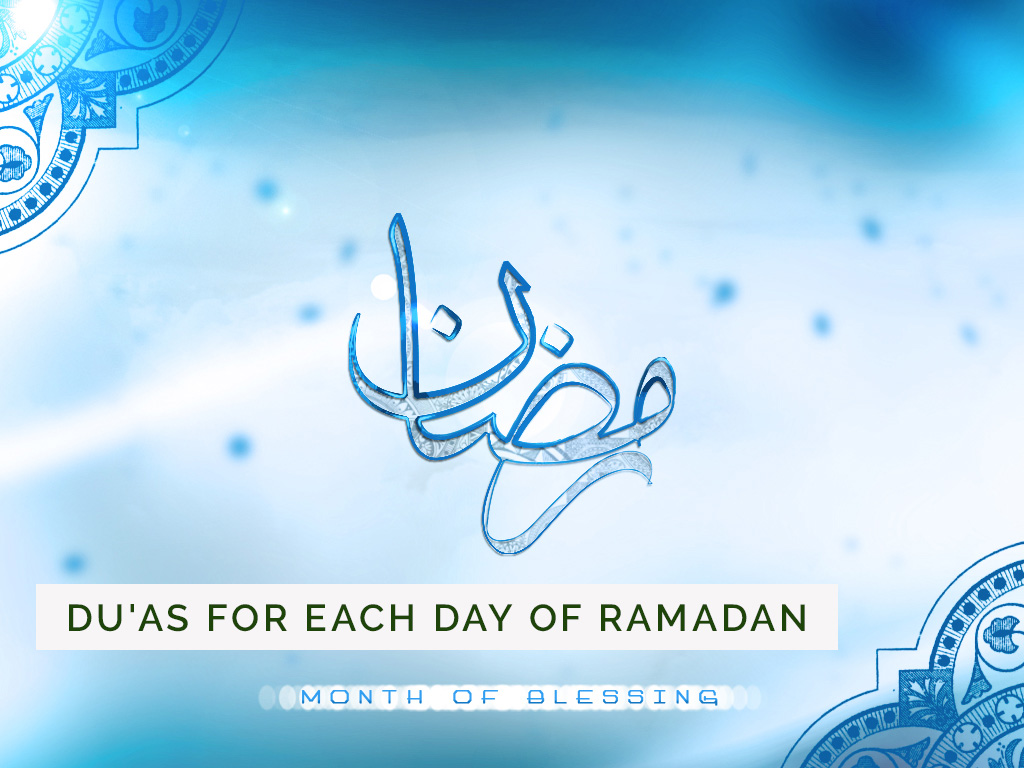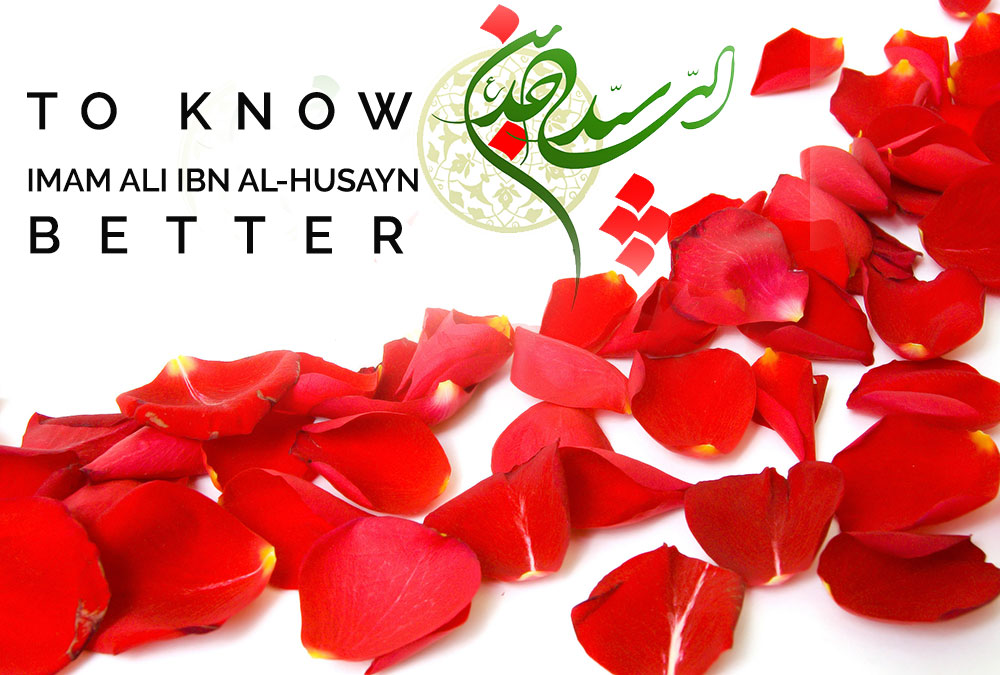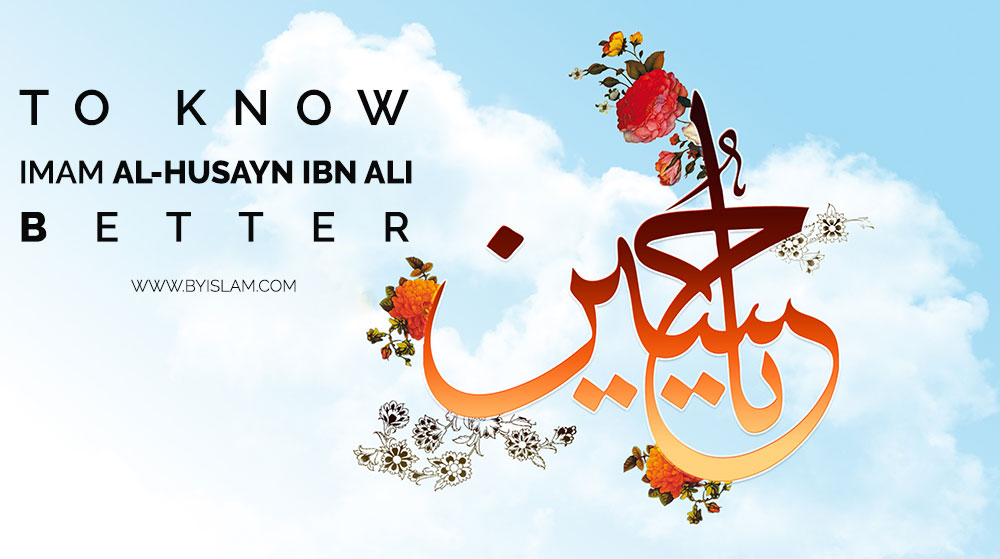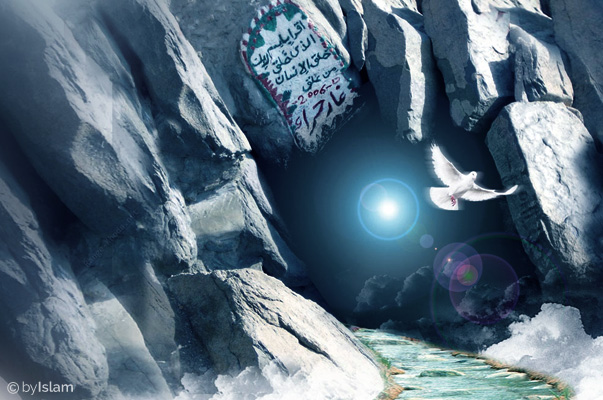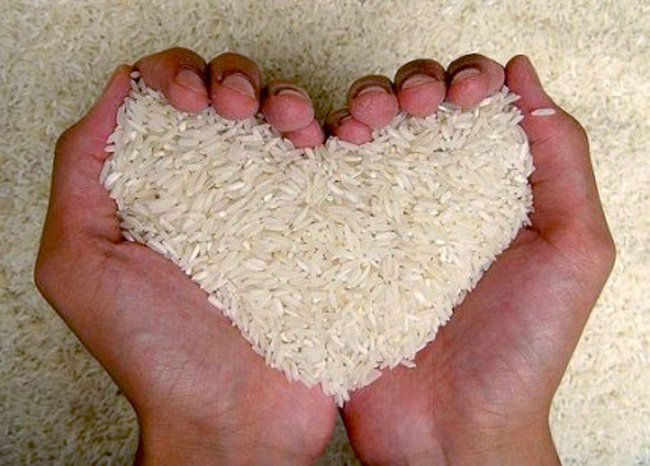
Surah Al-Baqarah, Verses 183-185
يَا أَيُّهَا الَّذِينَ آمَنُواْ كُتِبَ عَلَيْكُمُ الصِّيَامُ كَمَا كُتِبَ عَلَى الَّذِينَ مِن قَبْلِكُمْ لَعَلَّكُمْ تَتَّقُونَ
“O’ you who have Faith! Fasting is prescribed for you as it was prescribed for those before you, so that you may guard yourselves (against evil).”
أَيَّامًا مَّعْدُودَاتٍ فَمَن كَانَ مِنكُم مَّرِيضًا أَوْ عَلَى سَفَرٍ فَعِدَّةٌ مِّنْ أَيَّامٍ أُخَرَ وَعَلَى الَّذِينَ يُطِيقُونَهُ فِدْيَةٌ طَعَامُ مِسْكِينٍ فَمَن تَطَوَّعَ خَيْرًا فَهُوَ خَيْرٌ لَّهُ وَأَن تَصُومُواْ خَيْرٌ لَّكُمْ إِن كُنتُمْ تَعْلَمُونَ
“(Fast for) a certain number of days. But whoever among you is sick or on a journey, then (he shall fast) the same number of other days, and for those who are hardly to do it, (there is) a redemption by feeding an indigent. But whoever volunteers to do good, it is better for him; and it is better for you that you fast, if you did (only) know.”
شَهْرُ رَمَضَانَ الَّذِيَ أُنزِلَ فِيهِ الْقُرْآنُ هُدًى لِّلنَّاسِ وَبَيِّنَاتٍ مِّنَ الْهُدَى وَالْفُرْقَانِ فَمَن شَهِدَ مِنكُمُ الشَّهْرَ فَلْيَصُمْهُ وَمَن كَانَ مَرِيضًا أَوْ عَلَى سَفَرٍ فَعِدَّةٌ مِّنْ أَيَّامٍ أُخَرَ يُرِيدُ اللّهُ بِكُمُ الْيُسْرَ وَلاَ يُرِيدُ بِكُمُ الْعُسْرَ وَلِتُكْمِلُواْ الْعِدَّةَ وَلِتُكَبِّرُواْ اللّهَ عَلَى مَا هَدَاكُمْ وَلَعَلَّكُمْ تَشْكُرُونَ
“The month of Ramadan that wherein the Qur’an was sent down to be a guidance for mankind, and as clear signs of guidance and a criterion (between right and wrong). Therefore, whoever of you is present (at his home) during the month, he shall fast therein and whoever is sick or on a journey, he shall then (fast) the same number of other days; Allah desires ease for you, and He does not desire hardship for you; so you should complete the number (of days decreed), and exalt Allah for His having guided you, and that haply you might be grateful (to Him).”
[su_divider top=”no” style=”dashed” divider_color=”#68c29f” size=”1″ margin=”10″]
Fasting, the Origin of Piety
Next to several important ordinances of Islam stated in the former verses, these current verses refer to another ordinance, i.e. fasting, which is one of the most serious acts of worship. The Qur’an, with the same tone of emphasis that was applied for the previous verses, says:
“O’ you who have Faith! Fasting is prescribed for you as it was prescribed for those before you…“
Then, immediately after this, it refers to the philosophy of this humanizing worship and, in a short but meaningful sentence, says:
“…so that you may guard yourselves (against evil),”
According to what the Late Kolayni says in his famous book (Al-Kafi), piety is rendered into one’s restriction from sin. Most sins originate from wrath and lust. Fasting brings the extravagance of this instinct under control, which, consequently, decreases corruption and increases piety.
Yes, fasting is a great effective factor in the process of training the spirit of piety in all dimensions of every field; this will be addressed in detail later.
Since this worship is accompanied with deprivation from some material pleasures and one must suffer some troubles especially when it is in summer, there are different particular meanings used in the above verse to make the mind of believers ready for the acceptance of this decree.
To attract the attentions and to make the subject an interesting one for the addressees, it begins with the phrase:
“O’ you who have Faith!”
Then, it refers to the statement of the fact that fasting is not appointed only for Muslim Ummah but it had been practiced by the former nations, too.
Finally, the philosophy of fasting, and that the fruitful results of this Divinely ordered duty return totally to you, is stated.
A tradition narrated from Imam al-Sadiq (as) says:
“The pleasure found in (the phrase: ‘ O’ you who have Faith! ‘ is so that) it has removed the tiredness of this worship and effort.”
[su_divider top=”no” style=”dotted” divider_color=”#68c29f” size=”1″ margin=”55″]
- “(Fast for) a certain number of days. But whoever among you is sick or on a journey, then (he shall fast) the same number of other days, and for those who are hardly to do it, (there is) a redemption by feeding an indigent. But whoever volunteers to do good, it is better for him; and it is better for you that you fast, if you did (only) know.”
In the next verse, again, in order to reduce the hardship of fasting, it states a few other commands regarding this. It initiates the subject thus:
“(Fast for) a certain number of days….”
It is not so that you be obliged to fast all the year through or a considerable part of it, but fasting is for only a small section of the year.
Another matter is that:
“..But whoever among you is sick or on a journey, then (he shall fast) the same number of other days…”
Then there comes the third group, those who are absolutely unable to fast, such as elderly men, elderly women, the constant patients with chronic diseases, where it says:
“… and for those who are hardly able to do it, (there is) a redemption by feeding an indigen..”
“…But whoever volunteers to do good, it is better for him…”
And finally, at the end of the verse, the fact is restated, which itself is another emphasis on the philosophy of fasting, thus:
“… And it is better for you that you fast, if you did (only) know.”
This meaning also refers to the fact that the worship of fasting, as other worships, does not add anything to the Glory and Dignity of Allah but all its merits are for the worshipper. Islamic traditions confirm the same meaning, too.
The holy Prophet (S) has said: “He who fasts during the fasting month for the sake of Allah, all his sins will be forgiven.”
It is also cited in a divine tradition that Allah says: “Fasting is Mine, and I do reward it.”
Also, in another tradition it is narrated from the holy Prophet (S) who said:
“There is an alm for everything, and the alms of bodies is fasting.”
Hence, it makes clear that the phrase: “…it is better for you that you fast…” addresses all those who fast, not only a particular group of them.
[su_divider top=”no” style=”dotted” divider_color=”#68c29f” size=”1″ margin=”55″]
- “The month of Ramadan that wherein the Qur’an was sent down to be a guidance for mankind, and as clear signs of guidance and a criterion (between right and wrong). Therefore, whoever of you is present (at his home) during the month, he shall fast therein and whoever is sick or on a journey, he shall then (fast) the same number of other days; Allah desires ease for you, and He does not desire hardship for you; so you should complete the number (of days decreed), and exalt Allah for His having guided you, and that haply you might be grateful (to Him).”
The last verse of this group of verses introduces the time of fasting and a part of its ordinances and their philosophies. At first it says that those certain days that you must fast are the month of Ramadan, and:
“The month of Ramadan is that wherein the Qur’an was sent down…”
And this Qur’an is the same that is:
“…to be a guidance for mankind, and as clear signs of guidance and a criterion (between right and wrong)…”
Then again, the command for the passengers and the sick is restated and, as an emphasis, it says:
“… Therefore, whoever of you is present (at his home) during the month, he shall fast therein, and whoever is sick or on a journey, he shall then (fast) the same number of other days…”
The repetition of the ordinance of the sick and passenger in this verse and the previous one may be for the purpose that some people, thinking that not to fast is absolutely a disgraceful action, insist on fasting when they are sick or are on a journey, so the Qur’an, by this repetition, makes the Muslims understand that fasting is a divine duty for the safe and sound persons while, in the same manner, not fasting is also a divine command for the sick and passengers (with their proper conditions) so that the offense of it is a sin.
At the end of the verse, it pays attention to the philosophy of the divine legislation of fasting once more, and says:
“… Allah desires ease for you, and He does not desire hardship for you…”
It points to this fact that although fasting is apparently a kind of strictness and limitation, its conclusion is ease and tranquility of man, both spiritually and materially.
This sentence may hint to this matter that the Divine commands are not similar to the commands of tyrants. In the case that the fulfillment of an action is very labour some, Allah enjoins an easier duty to be performed. Therefore, the ordinance of fasting, with all its importance, was exempted for the sick, passengers, and those feeble ones unable to perform it.
Then, it adds:
“…So you should complete the number (of days decreed)…”
This means that everyone who is safe should fast one month a year because it is necessary for his health. For this reason, if a person is sick or on a journey during the month of Ramadan, the one must belate the accomplishment of fasting those days until the same number is completed.
Even menstruous women, who are excused from establishing prayers, are not exempted from fasting at a later date.
So, in the final sentence of the verse, it says: “…and exalt Allah for His having guided you, and that haply you might be grateful (to Him).”
Yes, we must exalt Allah for the guidance He has endowed upon us, and be thankful to Him for all those blessings He has mercifully given us.
It is noteworthy that the act of thanksgiving is mentioned with the term ‘haply’, while the matter of exalting Allah is stated conclusively.
This difference of statement may be for the reason that the fulfillment of this worship (fasting) is, at any rate, the exaltation of the Essence of Allah, but thanksgiving, which is the same as using the blessings if, their proper sites and taking benefit from the effects and practical issues of fasting, has some conditions which will not be fulfilled unless those conditions be obtained, the most important of which are: a perfect sincerity, the recognition of the reality of fasting, and acknowledgement about the philosophy of fasting.

